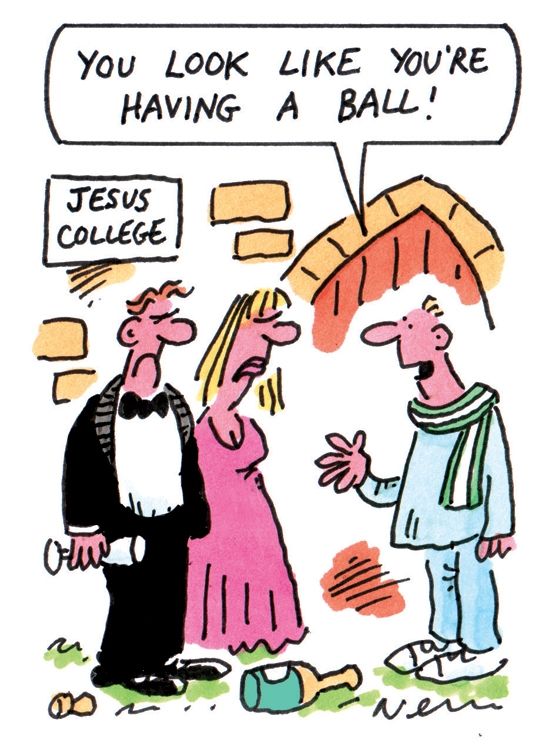
- If it had wanted to, the Home Office could have issued a loud raspberry to its critics in the higher education sector after figures showed a rise in visa applications for university study. Overall net migration contracted by 10,000 to 153,000 in the year to September 2012, according to Office for National Statistics data released on 23 May, but the decrease is largely the result of a fall in overseas student applicants, The Guardian reported. Figures for sponsored student visa applications for March 2013 show a 10 per cent drop compared with the previous year. However, the fall is focused on further education and English language schools (both down 46 per cent): university visa applications have risen by 5 per cent. Instead of a raspberry, Mark Harper, the immigration minister, blew kisses and whispered sweet nothings about the UK’s “world-class universities”, continuing the shift in Home Office rhetoric.
- Dubbed “the Nobel Prize factory” for its astonishing successes, Cambridge’s Laboratory of Molecular Biology is known for housing some of the world’s top scientists, but it seems the Duke of Edinburgh thinks otherwise. During a visit to the Medical Research Council-run lab last week, 91-year-old Prince Philip asked a Polish research student: “Did you come here to pick raspberries?” the Cambridge News reported on 24 May. Palace aides might like to remind the Duke that the concept of Polish émigré scientists is fairly well known, as champions of double Nobel laureate Marie Curie will attest. His friends in higher education might also like to remind him that propagating the idea of foreign students as unskilled economic migrants is neither accurate nor helpful.
- Seeing the future leaders of the nation get legless usually sends the national press into a frenzy of excitement, but coverage of the Oxbridge May Balls was rather flat this year. Events at the £150-a-head Last Ball, hosted by Somerville College, Oxford and Jesus College, Oxford, were reported by The Tab Cambridge, their ancient rival’s student newspaper, on 25 May. “All the alcohol (with the exception of rum) had run out by 1am, and by 4am even that had run out,” it said. Some guests complained of “burnt skin and dresses, caused by crowds waiting around the hog roast for up to an hour”, said The Guardian, the only taker for the story among the nationals. One guest “had to wait for an hour for a pork roll and suffered bruising in the melee to get food before it ran out”. Standards need to rise fast: Oxbridge’s mystique was not built on tales of queues around the hog roast.
- The University of Greenwich has launched an investigation into extremism on campus after confirming that one of the suspects in the murder of a British soldier studied at the institution. Michael Adebolajo, 28, who was shot by police and arrested for the killing of Drummer Lee Rigby in Woolwich, South East London on 22 May, was a student at Greenwich in 2003-04 and 2004-05, but left due to “unsatisfactory” academic progress. The university said it had no record relating to the other suspect in the murder – named in media reports as 22-year-old Michael Adebowale – despite claims that he had also studied there. David Maguire, Greenwich’s vice-chancellor, said the investigation would consider any links the two men had with the university and look at whether there had been on-campus extremism “past or present”.
- Stay-at-home students who attend a local university should be eligible for cut-price tuition fees of £5,000 a year, according to experts. The Commission on the Future of Higher Education, set up by thinktank the Institute for Public Policy Research, says that those taking the “fee-only degree” would not be eligible for maintenance grants and loans, meaning the government could save up to £10,000 per student. The IPPR commission, led by Nigel Thrift, vice-chancellor of the University of Warwick, is not scheduled to publish in full until 10 June, but released some findings on 28 May. In these days of students as consumers, the cut-price fee model sounds similar to the airline industry’s business and economy classes. Cut-price students living in cramped circumstances thanks to a lack of cash may find themselves looking enviously at their more comfortable peers’ additional legroom.
Register to continue
Why register?
- Registration is free and only takes a moment
- Once registered, you can read 3 articles a month
- Sign up for our newsletter
Subscribe
Or subscribe for unlimited access to:
- Unlimited access to news, views, insights & reviews
- Digital editions
- Digital access to THE’s university and college rankings analysis
Already registered or a current subscriber? Login